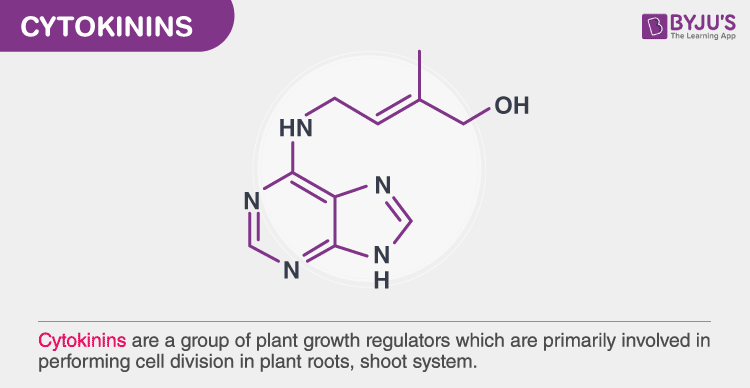
Cytokinins are a group of plant growth regulators which are primarily involved in performing cell division in plant roots, shoot system. This hormone helps in promoting the cell’s growth, development, differentiation, affecting apical dominance and delay in leaf senescence.
These hormones mostly found in all the complex plants, bacteria, mosses, and fungi. There are some 200 different types of synthetic and natural cytokinins and most of them are usually developed in the meristem of the roots. It is the name of an area of tissue in the plant that promotes cell division actively. A meristem is a place that grows in the plants like the top of the stem.
Cytokinins are usually formed in the rapidly dividing tissues such as root apices, growing shoot, etc.
Functions
Cytokinins help in increasing the cell division by maintaining the protein production that is important for mitosis. The term Mitosis refers to a non-sexual division of cells that usually occurs in all the living things by developing additional cells for the growth of the body. Mitosis occurs every day by replacing the damaged cells by allowing them for growth. There are many times when you get hurt and you lost your skin from knee, it’s the same mitosis that helps in the growth of all the cells you lost and gets you the skin.
Mitosis is responsible for growth of plants.
Uses
- Helps in promoting cell division and growth of the plant.
- Used by farmers to increase the production of crops
- When applied to cotton seedlings, it led to a 5-10 % increase even in drought conditions.
- Plays a major role in plant pathogenesis by inducing resistance against certain disease-causing bacteria.
To know more about Cytokinins and other plant growth regulators, visit BYJU’S.
Recommended Video:


Comments